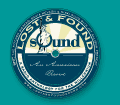Back to main story page.
Charles Wolfe tells the story of Hatch Show Print
Alongside the lost & found sounds of the Grand Ole Opry and The
Pan-American Blues, there's another story that is more for the eye than
the ear. Hatch Show Print, the company that produced posters for many
Opry performers and music legends, left a lengthy legacy in ink -- a
collection of images that capture a bygone era in American
entertainment.
In the process of creating our story, The Kitchen
Sisters spoke with Charles Wolfe about Hatch Show Print and its
importance to country music. Dr. Wolfe is a professor of English at
Middle Tennessee State University, where he teaches courses in
folklore, science fiction, and popular culture. He is the author of
over fifteen books, including A Good Natured Riot: The Birth of the
Grand Ole Opry, and he serves as the editor of the Tennessee Folklore
Society Quarterly and co-editor of Studies in Country Music.
"When the Opry started going out and doing show dates in the thirties,
nobody really knew how to publicize and promote country shows. They
tried a number of things -- creating trailers they would show in the
local theaters, radio advertising -- that didn't work too well.
"They found that the most effective way of letting people know that a
show was coming to town was to use window cards. These are posters that
are maybe eleven by fourteen inches. They would have all the details of
the show: where, when, how much. And whenever you made up your show
cards, you always put at the very top: 'From WSM's Grand Ole Opry.'
Because that was the seal of approval -- if you had that on there,
people knew they were getting the best country music,

